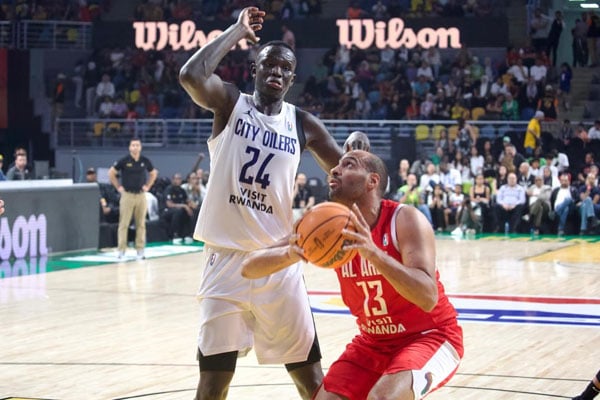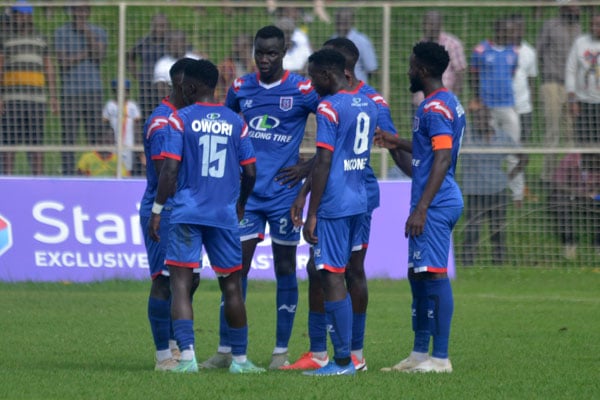Why Cecafa Cup needs a 21st century mindset

Players like Milton Karisa could benefit from a 21st century approach by Cecafa top brass.
PHOTO BY EDDIE CHICCO
It’s back, but, having taken a one-year sabbatical in the recent past, there is nothing falsely consoling about the fact that the Cecafa Senior Challenge Cup will from December 3 be contested by 10 countries. Make no mistake, it is a considerable accomplishment that the tournament is being talked about in the present tense. The oldest cup competition in Africa (held since 1926), the tournament traces its roots to the colonial days when it was simply known as the Gossage Cup. It offered bragging rights to only acrimonious close door neighbours, Kenya and Uganda.
Sadly, the bulging of its member nations notwithstanding, Africa’s oldest cup competition has spectacularly failed to stitch together an evolving portrait. An exploration of the subterranean realms of the tournament leads one to the wrenchingly candid conclusion that things have well and truly fallen apart. Nothing good seems to be coming out of the rubble; only inertia.
The stagnation is as intensely moving as it is worrying. I have faint memories of my first Senior Challenge Cup as I was only in my second year at primary school. The state broadcaster’s kaleidoscopic portrayal of the 1989 cup final penalty shootout against Malawi, however, lingers on in your columnist’s memory. Those were the days! But while those days are too distant to be captured by the rear view mirror, organisers of the Senior Challenge Cup still want to run their prized possession like we are in the 1980s.
It’s as if shoulder pads are still fashionable! The seriousness and weight of marketing has gone a notch higher in this era of commercialisation and consumerism.
Don’t try telling that to Cecafa Senior Challenge Cup officials who, with an unblinking look, choose not to showcase a 21st century mindset. The tournament is literally run out of a briefcase! Draws are done in near secrecy with no grandeur or glitz. Fragments of the tournament’s online presence are down to journalists and the odd fan.
It therefore comes as no surprise that the tournament always finds itself on life support, living to die another day.
Cranes need to decisively address goals deficiency
Adisturbing hubris has settled over Ugandan football after the national team, The Cranes, placed second only to record African champions, Egypt, in a 2018 Fifa World Cup qualifying group. Accompanying extravagant praise with a sense of contentment, Ugandans have committed to their capacious memory dozens of clues that hint at The Cranes being on track for greatness.
This column has never been in the habit of bursting bubbles, but your columnist cannot resist wielding a pin on this occasion. Views that run counter to this column’s hold that finishing ahead of a powerhouse such as Ghana should not in anyway be diminished. The truth and, crucially, simplicity of such a viewpoint cannot be questioned.
The viewpoint is simplistic because it takes things at face value. A profound approach will undoubtedly project turning The Cranes into world beaters as a task that is inherently humiliating as it is tedious. That the team seems destined to lag behind the lofty hopes of its fans should come as no surprise for number crunchers. Those that carefully pored over the numbers from the recently concluded World Cup qualifying campaign must have noticed that Uganda scored three goals in six matches.
Yes, three!
Many reasons will be proffered for the pitiful return. A popular one is the dip in form of Farouk Miya. The attacking midfielder petered off badly after scoring three goals across two legs against Togo’s Sparrow Hawks in the preliminary stage. He wasn’t as profile in the group stage, managing a solitary goal. Miya’s winner against Congo Brazzaville was only followed by a peach of a goal from Emma Okwi (inset below) during a marginal win over Egypt. Milton Karisa’s fortuitous cross-shot in Brazzaville brought up the rear last Sunday. This left The Cranes with a goals-per-game return -- 0.5 -- that very few countries look at longingly.
So, instead of Ugandans chest thumping about lording it over Ghana’s Black Stars, it would be more purposeful to establish why their national team cannot score goals in droves. A terse comment by Mike Mutebi after his KCCA FC outfit beat Police FC midweek in the Uganda Premier League goes some way in exhausting the problems that afflict Ugandan football. While acknowledging that Police FC possessed the ball more, Mutebi further observed that the Cops barely played penetrating passes to hurt his side. “They always played the ball square just like The Cranes do,” the KCCA FC first team manager noted darkly, his face breaking into a frown.
It is a valid point. The through ball that Sadam Juma threaded to put Muhammad Shaban clear on goal for the Kasasiro Boys’ opener rarely sees the light of day during Cranes matches. This will have to change if Uganda intends to make good on its promise to dine with world football aristocrats. Short of that, The Cranes will continue to be bridesmaids.
What we now know....
We now know that City Oilers will go in their fifth straight National Basketball League finals. The men’s defending champions have won their four previous finals, and another such victory will see them move level with five-time champions Betway Power.
We also know that -- not for the first time -- Power were no match for Oilers in the post season. Oilers threw do the gauntlet with what is now becoming a traditional sweep of Joseph Ikong and company.
That Oilers did this without breaking a sweat is ominous for the two teams (KIU Titans and Pemba Warriors) looking to book a ticket to the finals.
[email protected]
@robertmadoi




